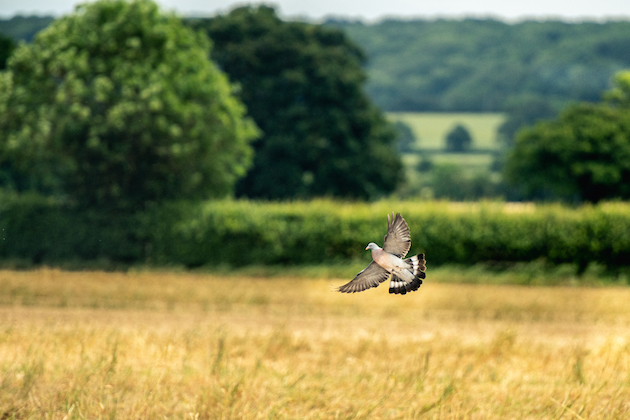More than a quarter of UK birds in serious decline
Ptarmigan may be heading towards extinction in the UK and the situation for grey partridge and black grouse remains extremely serious, according to the most recently published list of birds of conservation concern, warns Matt Cross

Can you distinguish a feral bird from a woodpigeon?
The list, which is drawn up by all the UK’s bird conservation groups including the GWCT, is updated every three years and categorises the status of birds as either red, amber or green. The ‘red list’ of birds of the highest conservation concern has increased in length by three species, with 11 species being added to the list and eight removed.
Woodcock
Woodcock were among the species staying on the red list. However, the red list status is based on declines in the breeding range of the UK’s small breeding woodcock population; the much larger and more commonly hunted migratory bird population remains healthy.
The restricted spread of the UK’s breeding population also meant that greylag and pink footed geese were included on the amber list despite booming migratory populations. Mallard, wigeon and teal all stayed on the amber list with woodpigeon added for the first time. However, red grouse moved from the amber list to the green list.
Ptarmigan
Among the quarry species it was the change of the status of the ptarmigan which attracted the most attention. The high altitude grouse species has moved from the green list to the red list due to an estimated 81% population drop. The GWCT’s National Game Bag census was the key piece of evidence for declining numbers of the bird. Climate change was suggested by the experts behind the list as the most likely cause.
“Overwhelming crises”
Mary Colwell author of Beak, Tooth and Claw and a leading curlew conservation campaigner, told Shooting Times that she believed a new approach was needed to stem the decline in the country’s birdlife and the wider biodiversity crisis. Mary said: “We are in a new age, one of immense challenges as well as opportunity.
“The overwhelming crises facing climate and biodiversity can only be met together. The old divides between groups that have been so damaging are fast appearing tribal and part of a lost time. They are petty when faced with climate instability and ecosystem collapse. We need each other’s wisdom and insight, and we all must be prepared to make compromises. Humanity and the natural world depend on our stepping up and truly embracing cooperation.”








